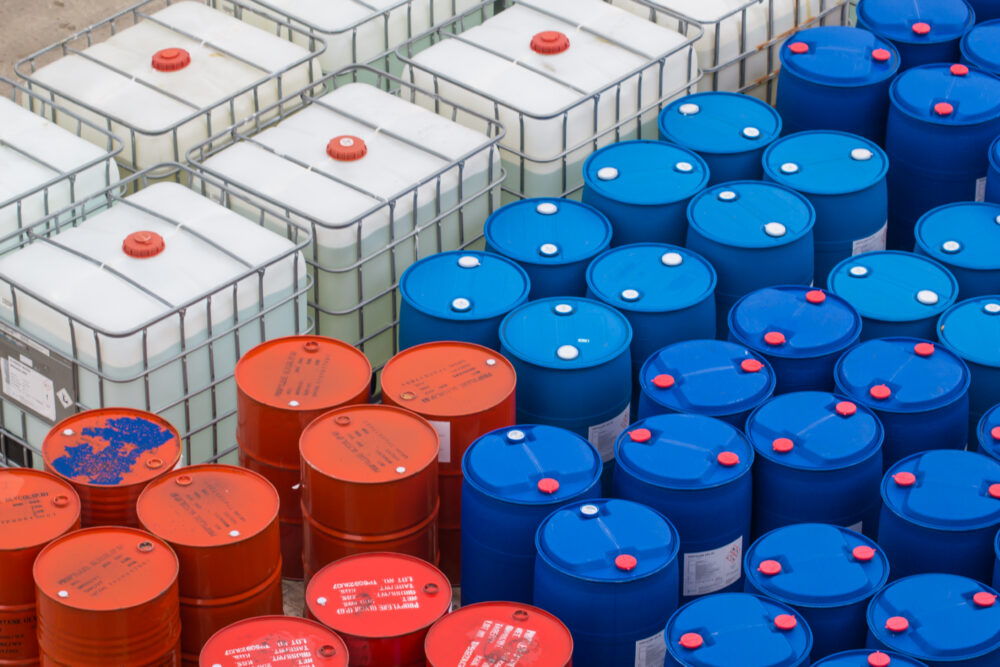Depending on the needs arising in business activities, enterprises have the right to import products. Enterprises need to meet certain conditions for some specific products to be allowed to import. Salt is in a particular product, and under this regulation, this product is currently subject to import quotas. This article will clarify the regulation on applying import quotas for salt products.

1. General regulations on import quotas
Import quota is a measure a competent state authority applies to decide the quantity, volume, and value of imported goods with a preferential tax rate compared to the non-quota tax rate. As mentioned in the introduction, only certain specific products are subject to import quotas. The application of import quotas when goods fall into one of the following cases:
- according to international treaties to which the Socialist Republic of Vietnam is a contracting party; or
- for goods ensuring macro balance and economic growth in each period; or
- when the importing country applies an import quota measure to Vietnam’s exported goods.
Accordingly, the list of goods managed according to import quotas includes:
- refined sugar, raw sugar;
- raw tobacco;
- poultry eggs (excluding fertilized eggs for incubation under HS codes: 04071110, 04071190, 04071911, 04071919, 04071991 and 04071999);
- salt.
In accordance with applicable laws and international commitments, salt does not belong to the List of goods prohibited from import and is on the List of goods managed under import tax quotas.
2. Quota levels and applicable conditions
2.1 Quota level: According to the provisions of Circular 13/2023/TT-BCT, the amount of import tariff quota for salt is 84,000 tons. However, this quota is valid until December 31, 2023. Precisely, competent state authority will adjust the quota level each year. On November 15, 2023, the Ministry of Industry and Trade will announce the number of new quotas applied in 2024. This quota level is one of the factors affecting the tax rate because the tax rates within and out-of-quota are not the same.
2.2 Conditions of application:
2.2.1 Conditions of application:
- Traders shall be granted import permits by the Ministry of Industry and Trade under tariff quotas, or notified in writing by the Ministry of Industry and Trade of the right to use import tariff quotas
- It is forbidden to use imported goods to produce or process goods for export.
2.2.2 Specific conditions:
- Traders have demands to use salt for production are confirmed by specialized competent authorities.
- Traders directly import salt to use as raw materials for the production of medicines and medical products and as raw materials for the production of chemicals.
Based on the purpose of use, to import salt within the quota and desire preferential tariff rates, traders are entitled to grant import permits or notify in writing the right to use import tariff quotas that must be appropriate and comply with one of the abovementioned purposes. Where traders have demands to import salt for commercial purposes, quotas may not be considered.
3. Import tax rates for salt products subject to quotas
According to Clause 1 Article 13 of Circular 12/2018/TT-BCT, traders who are granted import permits by the Ministry of Industry and Trade under tariff quotas or notified in writing by the Ministry of Industry and Trade of the right to use import tariff quotas shall be entitled to import tax rates in the tariff quota for the quantity of imported goods stated in the import permit according to the term tariff quotas or stated in the notification of the right to use import tariff quotas. The import tax rate for the quantity of goods imported within the tariff quota is determined as follows:
The import tax rate for the quantity of imported goods within the tariff quota is determined as follows:
Preferential import tax rates are specified in Section I Appendix II of Decree 26/2023/ND-CP; or
Special preferential import tax rates under the Special Preferential Import Tariff. Currently, Vietnam has signed preferential import tariffs with many countries, the special preferential tax rate for each country of origin will be different. For example, Japan’s import tax rate for “food salt” is 0%.
Below is a table of preferential import tax rates for salt specified in Section I Appendix II of Decree 26/2023/ND-CP:
|
Code of goods |
Description of goods |
Tax rate in quota (%) (Pursuant to Chapter 25 Appendix II of Decree 26/2023/ND-CP) |
Out-of-quota tax rate (%) (Pursuant to Appendix IV of Decree 26/2023/ND-CP) |
| 25.01 | Salt (including food salt and denatured salt) and pure sodium chloride, whether or not present in aqueous solution or containing anti-caking agents or flaking agents; sea water | ||
| 2501.00.10 | – Food salt | 30 | 60 |
| 2501.00.20 | – Unprocessed mine salt | 30 | 60 |
| 2501.00.50 | – Sea water | 15 | 50 |
| – Others: | |||
| 2501.00.91 | – – Contains sodium chloride content above 60% but less than 97%. In terms of dry content, iodine added | 15 | 50 |
| 2501.00.92 | – -Contains sodium chloride content of 97% or more, calculated by dry content | 15 | 50 |
| 2501.00.99 | – – Others: | 15 | 50 |
Disclaimers:
This article is for general information purposes only and is not intended to provide any legal advice for any particular case. The legal provisions referenced in the content are in effect at the time of publication but may have expired at the time you read the content. We therefore advise that you always consult a professional consultant before applying any content.
For issues related to the content or intellectual property rights of the article, please email cs@apolatlegal.vn.
Apolat Legal is a law firm in Vietnam with experience and capacity to provide consulting services related to International Commercial & Trade and contact our team of lawyers in Vietnam via email info@apolatlegal.com.





































